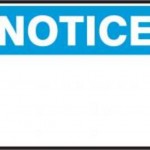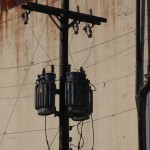A utility disconnection is one of the most serious problems a client can face. Fortunately, there are many steps that can be taken to help consumers in this situation, and consumer lawyers need to be familiar with these consumer rights.
1. Shut-Off Protections. Clients threatened by shut off of their electricity or gas have a series of protections that can at least delay termination. Over forty states limit disconnections during periods of extreme temperatures, either as specified by the time of year or by the actual temperature. The details of these protections in each of these states is found in Appx. A.5 of NCLC’s Access to Utility Service.
Virtually every state also provides protections for those with a serious illness. Other protections may apply to older residents or older residents with illnesses or older low-income residents. The protections for illness and related conditions are summarized in Access to Utility Service Appx. A.6.
2. Shut-Off Notice Requirements. Utilities in every state must notify the customer prior to disconnection and often must visit the customer at the residence prior to disconnection. Utility commissions often have detailed rules on the notice and customer contact requirements. See Appendix A.7 of Access to Utility Service for a summary of each state’s requirements.
3. Contact the State Public Utility Commission’s Consumer Division. The consumer division is tasked with resolving individual problems and this is often a good way to resolve client utility problems. The contact information for each state public utility commission is found in Appendix A.8 of Access to Utility Service.
4. Get Familiar with State Utility Regulations. Public utilities are highly regulated and are subject to detailed regulations providing various additional consumer rights not mentioned in items 1-3, supra,such as collection procedures, rate schedules, and rules covering meter reading, deposits, complaints, over- and under- billing, billing inaccuracies, and meter testing. Appendix A.1 of Access to Utility Service contains an 150-page summary of each state’s utility regulations.
5. Get the Client onto a Discounted Rate, Arrearage Forgiveness, or Other Utility Assistance Program. Utilities in Alabama, Arizona, California, Georgia, Indiana, Maine, Maryland, Massachusetts, Montana, New Hampshire, New Jersey, Ohio, Oregon, Pennsylvania, Texas, and Washington offer rate discount or special payment programs for lower income families. Each of these state programs is described in some detail in §7.2 of Access to Utility Service. Unfortunately clients are unaware of these programs—the utility may have no incentive to publicize them—and may have difficulty with the application process when they do discover the program.
 6. Sign the Client Up for the Low Income Home Energy Assistance Program (LIHEAP). LIHEAP is a federal block grant made to the states to help low-income households meet the cost of heating and cooling. States often administer the program through local community action programs, which are a good place to refer your clients. A thorough discussion of LIHEAP program and regulations are found in Chapter 8 of Access to Utility Service.
6. Sign the Client Up for the Low Income Home Energy Assistance Program (LIHEAP). LIHEAP is a federal block grant made to the states to help low-income households meet the cost of heating and cooling. States often administer the program through local community action programs, which are a good place to refer your clients. A thorough discussion of LIHEAP program and regulations are found in Chapter 8 of Access to Utility Service.
7. Home Weatherization May Be the Best Long-Term Solution. Weatherizing a home can permanently reduce energy burdens. Weatherization funding may be obtained through a federal program or from certain utilities themselves. How weatherization works where the consumer lives is a bit more complicated, and is explained in Chapter 9 of Access to Utility Service.
8. Make Doubly Sure Tenants in Public Housing or Publicly Assisted Housing Keep Their Utilities Turned On. In a double-whammy, tenants whose utilities are disconnected will also be evicted from public housing. Those in HUD-subsidized housing will lose their subsidy. It is far easier to prevent a utility disconnection than it is to prevent an eviction or loss of subsidy once the utility has been shut off.
9. When Landlord-Provided Utility Service Is Disconnected. Landlords facing financial difficulties may fail to pay utility bills, resulting in disconnection of service to tenants. Tenants have claims against the landlord, but that may not help to promptly turn back on the heat and electricity. Tenants have several strategies. One is to obtain service in the tenant’s own name. Another is to withhold rent and use that amount instead to pay the utility for the landlord’s obligation. When the landlord has filed bankruptcy, some additional tools may be available to tenants. These options are examined in Chapter 3 of Access to Utility Service.
10. Filing Bankruptcy is an Effective Tool to Deal with Utility Disconnections. Filing bankruptcy immediately sto ps any threatened shut-off and usually can force an immediate reconnection of service. Arrears are discharged in the bankruptcy. Of course, like any bankruptcy, it should not be filed too soon or when other approaches may be superior. Moreover, the consumer will have to pay for future utility bills in full, so discount rate programs, fuel assistance, and weatherization options should be explored for these clients as well.
ps any threatened shut-off and usually can force an immediate reconnection of service. Arrears are discharged in the bankruptcy. Of course, like any bankruptcy, it should not be filed too soon or when other approaches may be superior. Moreover, the consumer will have to pay for future utility bills in full, so discount rate programs, fuel assistance, and weatherization options should be explored for these clients as well.
11. Clients May Be Eligible for Free Landline of Cell Phone Service. The federal Lifeline program traditionally provides free or discounted landlines to low income consumers. With increasing frequency, low income consumers can now obtain limited cell phone service at no charge. Even if phone service is not the client’s primary problem, signing up for a Lifeline program can free up money to pay other essential utilities. The Lifeline and other discount telephone programs are examined in Access to Utility Service’s Chapter 11.
12. Understand the Different Regulatory Approaches to Different Types of Utilities and Fuels. Much of the above discussion refers to investor-owned utilities regulated by a state utility commission. Municipal water and electric utilities and rural electric cooperatives (RECs) have a different regulatory structure that may provide consumers with different rights than those relating to investor-owned utilities. Consumer rights concerning municipal utilities and RECs are considered in §15.1 of Access to Utility Service.
In addition certain fuels, such as oil, propane and wood, are unregulated. State deceptive practices (UDAP) statutes and common law claims may be the best options to deal with problems with unregulated fuels. UDAP claims are often not available against regulated, investor-owned utilities because of specific statutory exemptions, but these exemptions may not apply to unregulated fuel deliveries. See generally §§15.3 and 15.4 of Access to Utility Service.
Pages
February 2026 M T W T F S S 1 2 3 4 5 6 7 8 9 10 11 12 13 14 15 16 17 18 19 20 21 22 23 24 25 26 27 28 Categories
Archives
Blogroll

